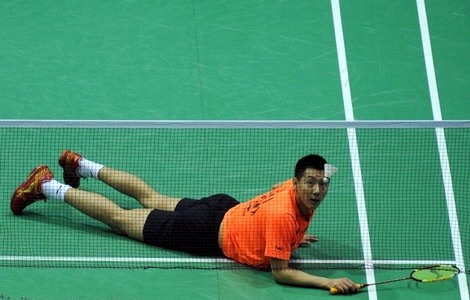 |
|
|
|
|||||||||||
Puppy love can be as much of a dilemma for parents as it is for the youths involved.
Yet a sampling of students in Shanghai has found that more than half of their parents don't oppose relationships for youngsters.
"When I entered my second year of studies in school, I found that some students began to fall in love," said Xu Jiajie, a 17-year-old student from Shanghai Luwan Senior High School.
"So I decided to carry out a survey on it," she said.
Xu spent nine months gathering information from a questionnaire, turning the 2,354 responses into a 10,000-word paper, which took first prize in the Shanghai Teenagers Science and Technology Innovation Competition.
"I hope students, parents and teachers can truly and objectively understand the issue of puppy love through the research, and can treat it more rationally and reduce conflicts," Xu said.
According to the survey, about 33 percent of the students - aged 15 to 18 from the city's high schools and vocational schools - said they were in love or had a special someone no one knew about.
On the flip side, 52 percent of parents said they did not oppose children's young love in school.
"Chinese parents often get headaches when they find their children have fallen in love. Such a situation has evolved over the years with changes in the social environment," said Zeng Yanbo, a researcher at the Shanghai Juvenile Research Institute under the Shanghai Academy of Social Sciences.
"Also, parents often have a better education background compared with 10 years ago. They often seek more peaceful ways to guide their children rather than endless preaching," she said.
When asked how they fell in love, 58 percent of the students said they let it develop naturally. And 42 percent said they would try their best to work it out if their parents were opposed.
"That reflected their desire for love in adolescence, during which students often like imagination and lack rational thinking," Xu said.
About 90 percent of students believe there is nothing special about students being in love.
"That reflects that being in love is quite natural in students' eyes, and they take a peaceful attitude toward it," Xu said.
Students in vocational schools were more likely to experience puppy love than those in key high schools, although the research found that puppy love was not correlated to students' academic performance.
"It's easy to see more students falling in love in vocational schools where there is less pressure and more leisure time, while in high schools, especially those key schools, students need a shoulder to cry on due to the intensive academic pressure," Xu explained.
"To have a certain fondness for one of the opposite sex is a normal phenomenon for adolescent students. Teachers often take a tolerant attitude toward the normal interaction of boys and girls in school, and will not interfere with it as long as they can balance dating and studies," said Liu Jinyan, a psychology teacher from Shanghai Luwan Senior High School, who guided Xu's project.
Liu also pointed out that such understanding and tolerance from parents and teachers is generally only found in bigger cities such as Beijing and Shanghai.
"In some remote areas, many parents still treat it as a serious taboo," she added.
"My parents have not explicitly said they oppose me falling in love in high school, but I think they don't want me to do that," said student Wang Bin.
"They often said the top priority of students is to study and enter a famous college while teachers in school also said the same thing. They don't know this only adds more negativity," Wang said.
When teachers discover students falling in love, they inform both sides' parents, who usually believe that the top priority and only task for the student is to study.
"Teenagers who have rebellious attitudes will tend to do what their parents and teachers forbid," one high school student complained online. "This would make things worse."
"Many students who fall in love break up eventually. Even so, it's still a kind of experience of a failed emotion, a kind of education about failure and suffering. I think that's a part of growth," said Wang Xin, a mother.
"Stubborn opposition may not produce a good result. Parents should teach children how to protect themselves and to have healthy interactions in school," she said.
Contact the writer at [email protected]

|

|

|

|

|

|